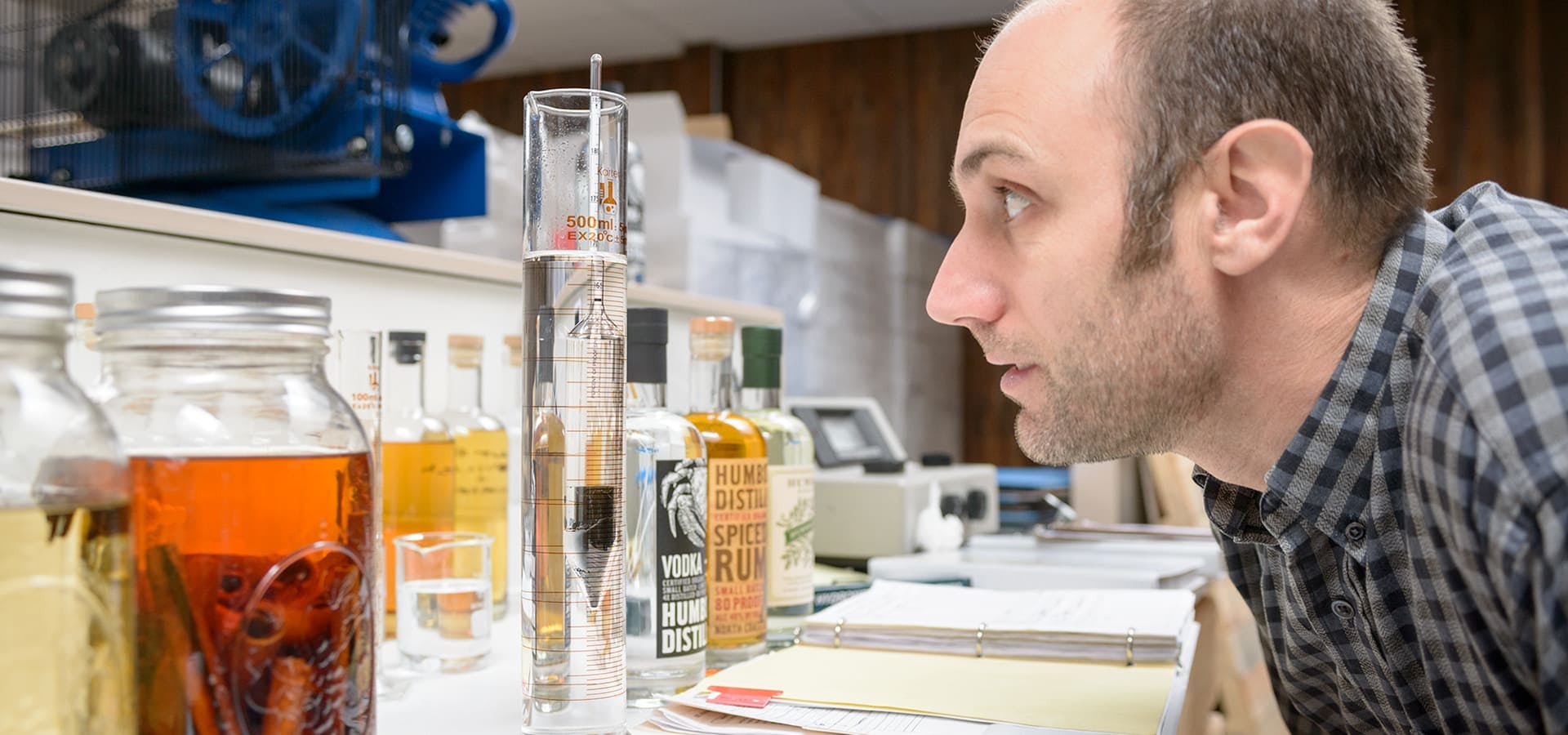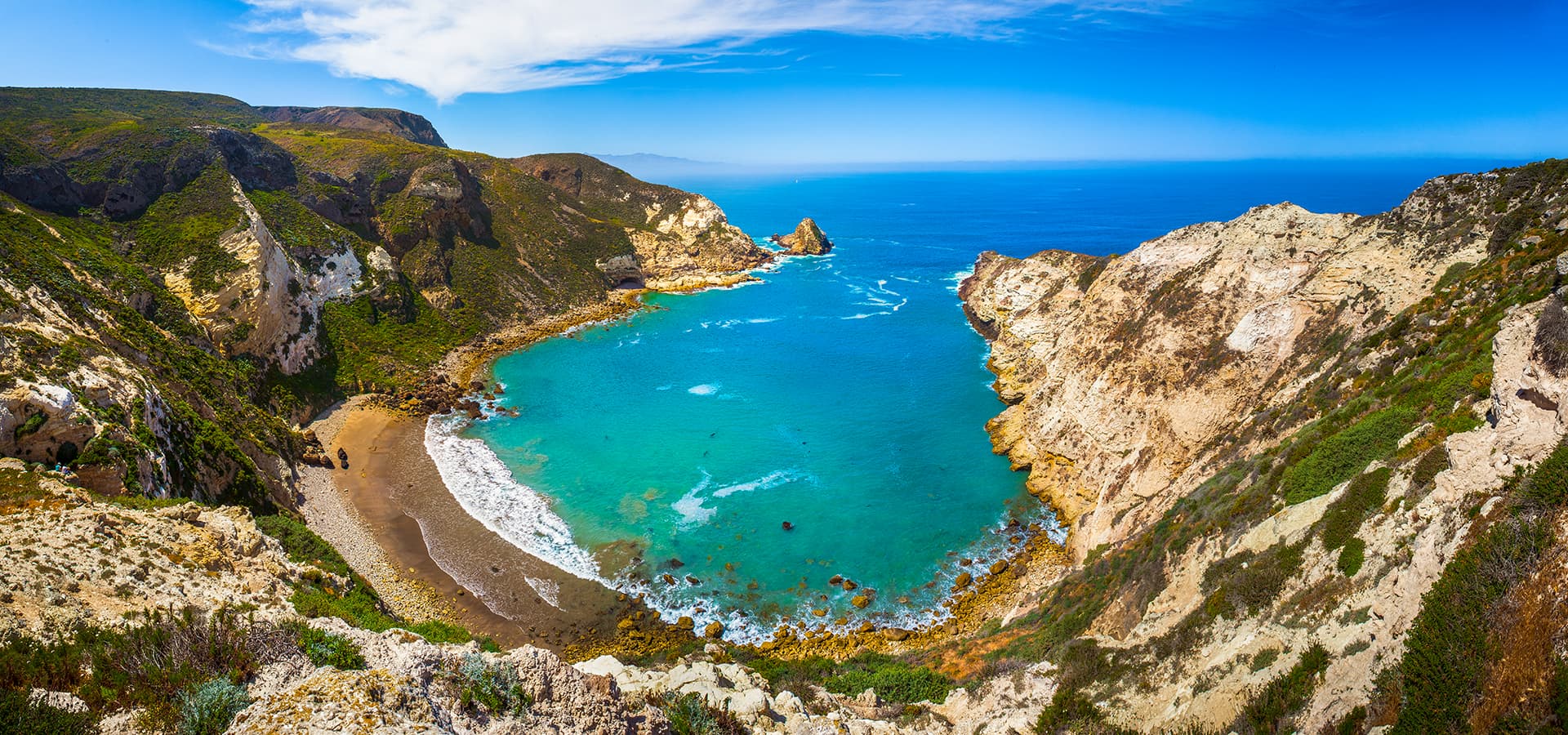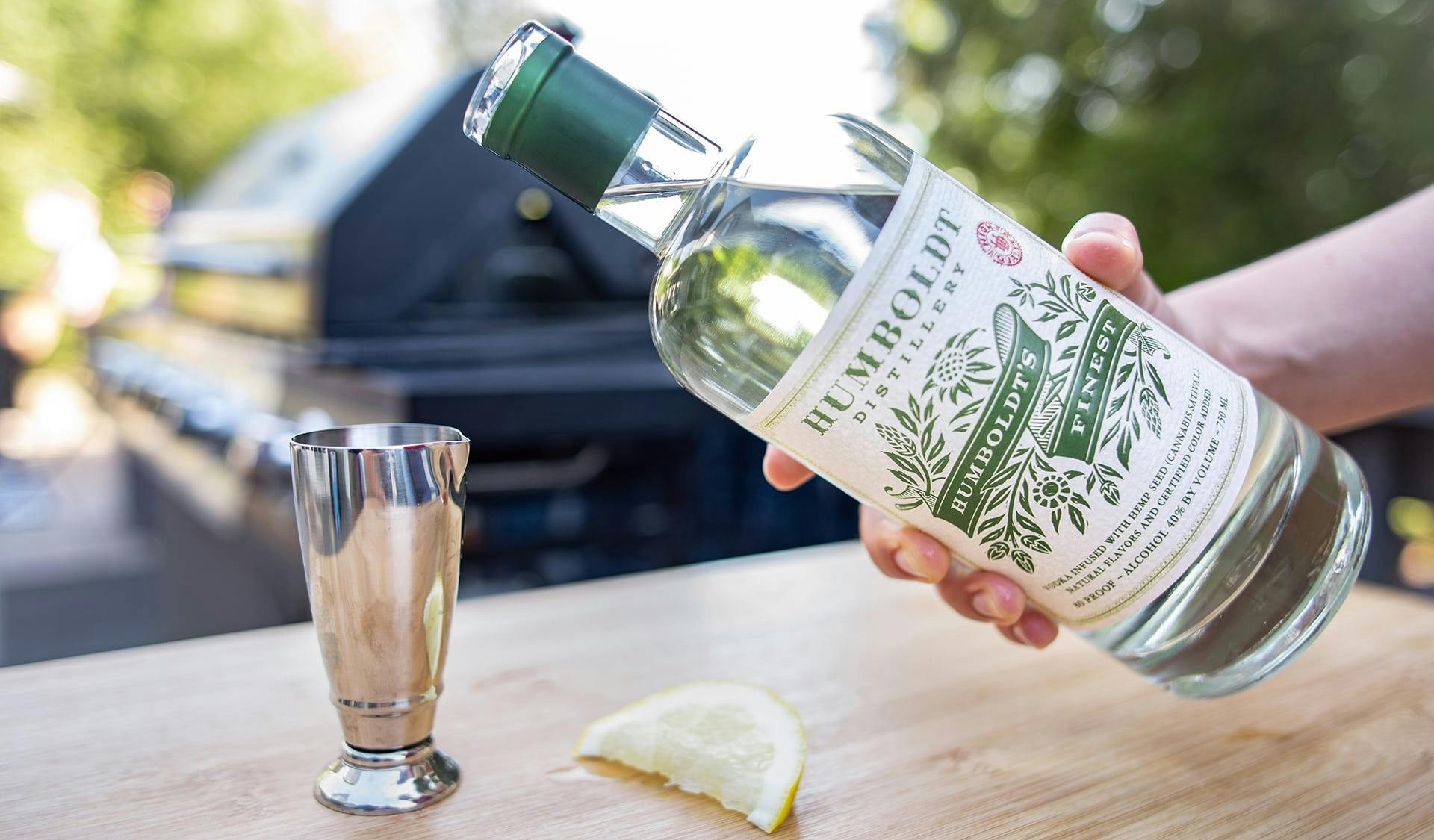
As a trained chemist, Abe yearned to fulfill his childhood dream of having his own laboratory. Inspired by northern California’s microbreweries, he decided that a craft distillery, established in his old stomping grounds, was as good a laboratory as he could create. Thus, Abe and Courtney founded Humboldt Distillery in 2012, and by the spring of the following year they had released their first product, a certified organic, small-batch vodka. That spirit, which is distilled using the county’s pristine natural water, quickly became the distillery’s flagship product and soon earned the highest possible accolades from the Bartender Spirits Awards.
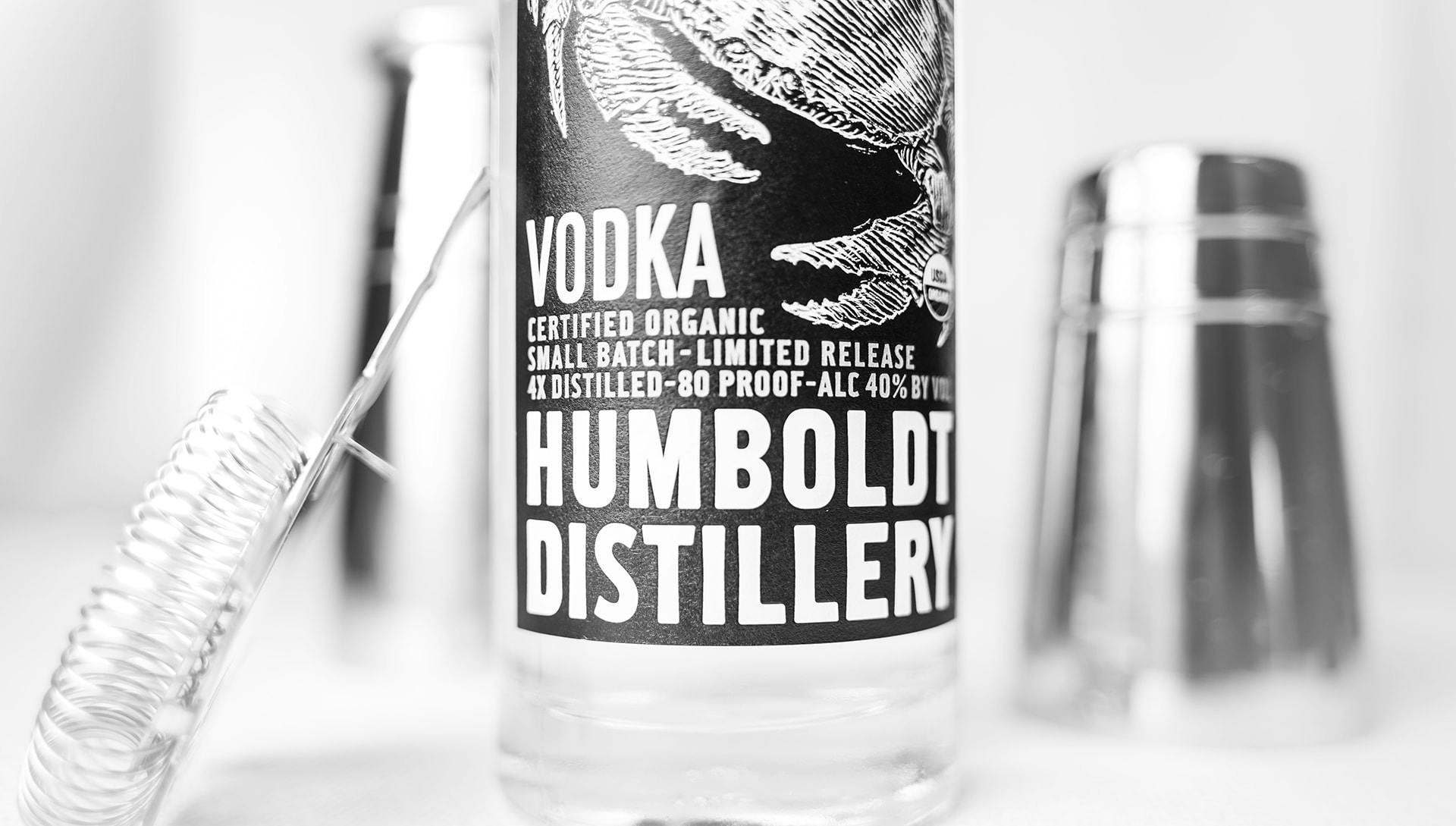
Humboldt Distillery’s premier spirit, distilled from sugar cane, distinguishes itself with a lush, velvety mouthfeel and slight hints of vanilla. Those characteristics are imparted by the use of sugar cane and perhaps the natural water, too. It’s a spirit with subtle charm and understated elegance; however, the vodka—as most vodkas go—is largely devoid of character. Ironically, this smooth, neutral spirit paved the way for a more distinctive vodka that even more effectively captured the distillery’s idiosyncratic sense of place.
“It was more fun for me to create a new spirit category rather than copy what everyone else is doing.”
During the first few years of Humboldt Distillery’s existence, Abe traveled around California, introducing consumers and bartenders to his organic vodka. Inevitably, those meetings would lead to conversations about Humboldt County’s reputation. “We know what Humboldt is about,” those prospective clients and consumers would say, shooting Abe a wink or giving him a nudge. As a region known for growing large quantities of cannabis, the location of Abe’s distillery often required the rookie distiller to field one specific (and predictable) question: When was he going to create a cannabis-infused product?
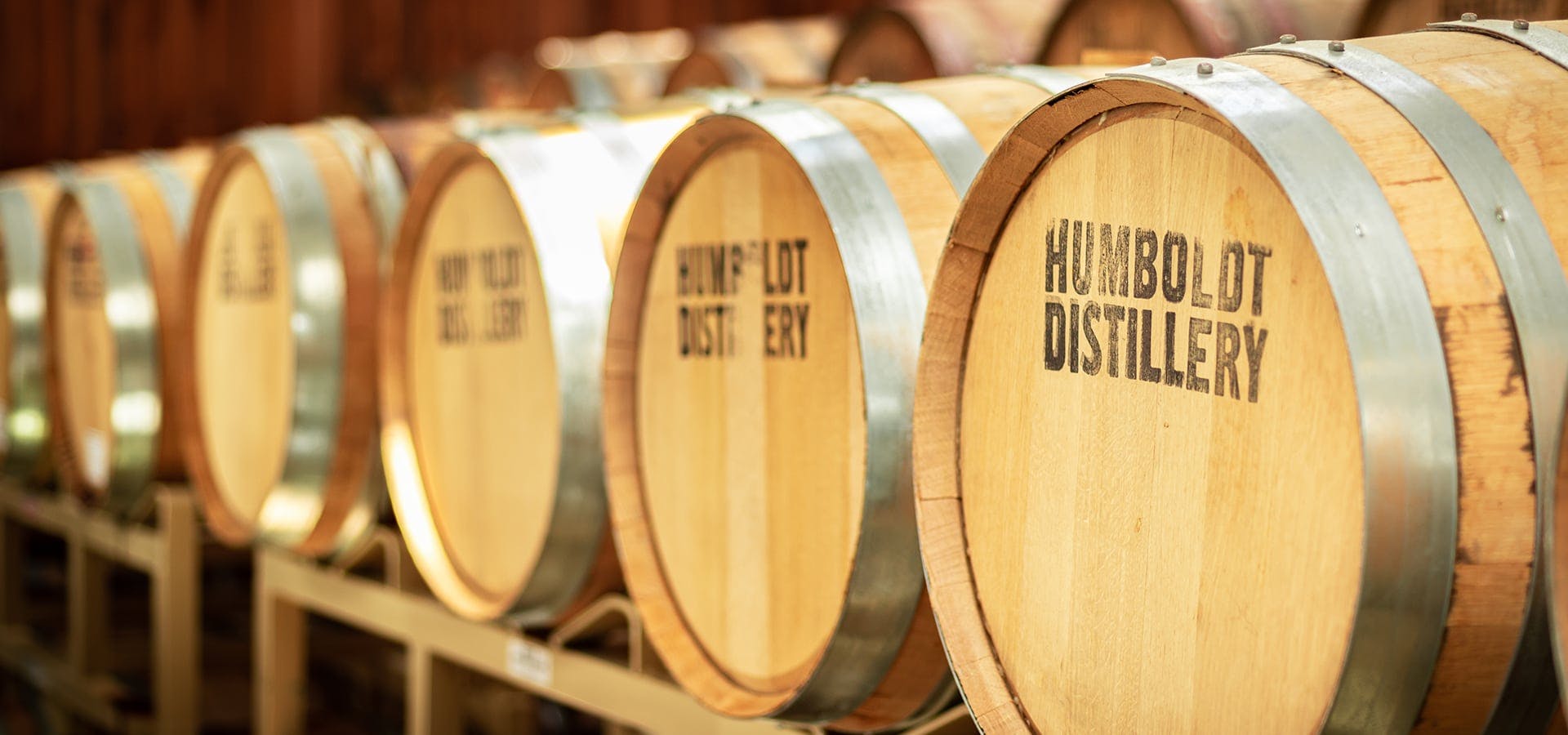
Soon, Abe was exploring and experimenting with the process of infusing locally grown hemp into his organic vodka. The goal, as he explains, was to spotlight the herbaceous, aromatic terpenes found within the hemp. And because he was working with a strain of hemp used for food and other applications, the vodka that was born from Abe’s experimentation is THC-free. In other words, those who were hoping for a marijuana-infused vodka will be disappointed—there’s no legal way to produce a marijuana-infused alcohol product, Abe says.
As for how Abe created Humboldt’s Finest—the name of his hemp-infused vodka—it was a lot of trial and error. In particular, learning how to capture the right ratio of terpenes allowed Abe to distill a vodka defined by freshness, though it also required him to learn how to extract the volatile oils of those terpenes—oils that don’t naturally dissolve in water—and to manipulate them in such a way that they don’t separate in the vodka, 60-percent of which is water. “It’s basic chemistry in terms of what knobs you can turn and levels you can pull,” he says, “but it wasn’t a simple process.”
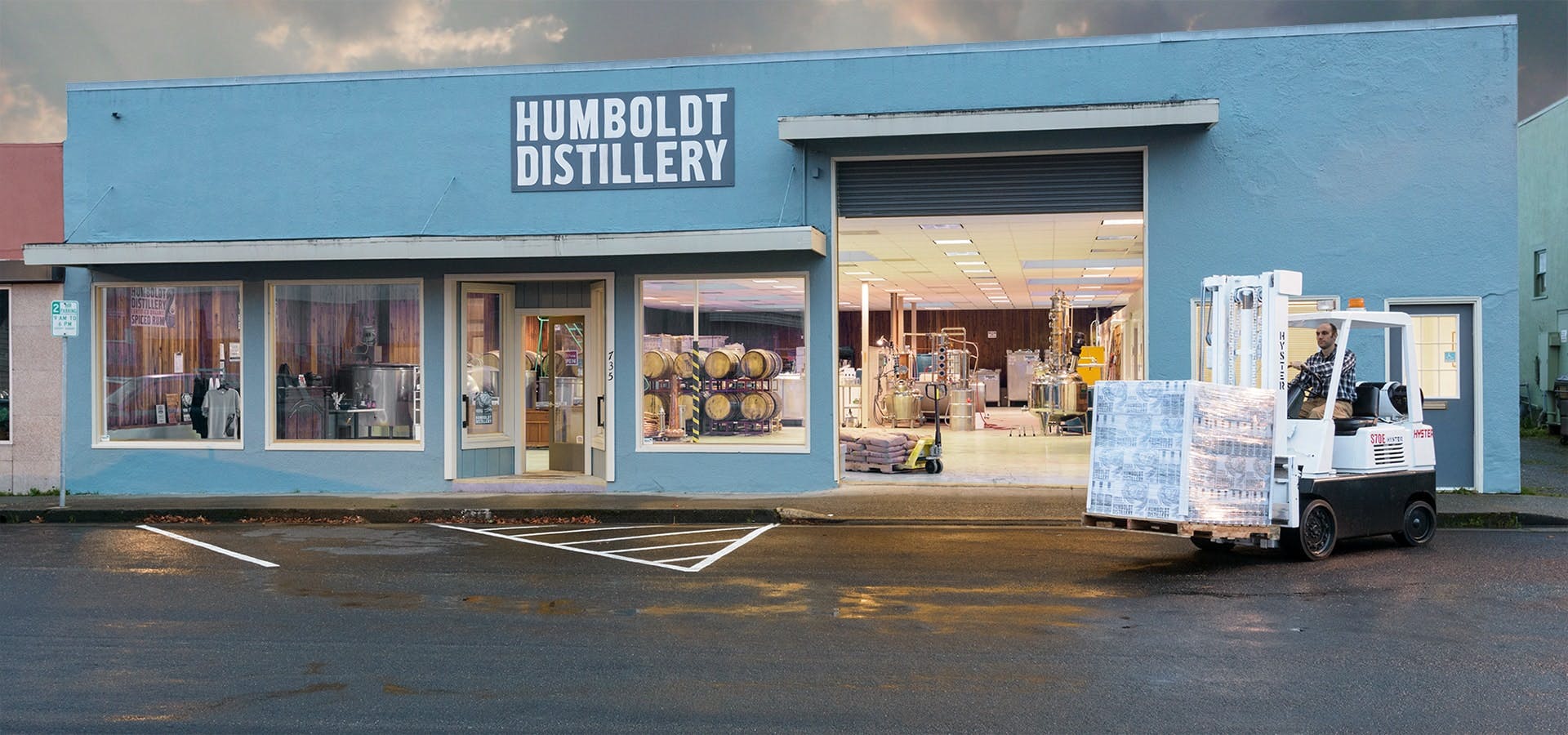
That process created a vodka with an unmistakable aroma, one defined by a sophisticated marriage of citrus notes and hints of thyme. On the palate, those same characteristics are mixed with a subtle sweetness and a touch of peppery spice. For those who traditionally scoff at vodka (yours truly), Humboldt’s Finest is a welcome aberration. And for those who normally mix (or order) martinis made exclusively with gin, the substitution of Humboldt’s Finest creates an upscale cocktail that shines with a bright, crisp freshness—a truly “green” flavor—without the potentially overpowering piney qualities that juniper berries can sometimes impart.
In fact, craft cocktail enthusiasts represent the majority of Humboldt’s Finest customers. “People making craft cocktails are liking it not because it’s hemp—although maybe that’s a cool backstory—but because it’s unique and gives them a new aromatic profile to add to their toolbox for craft cocktail making,” says Abe. “If they want a new twist on an old cocktail it gives them that opportunity.”
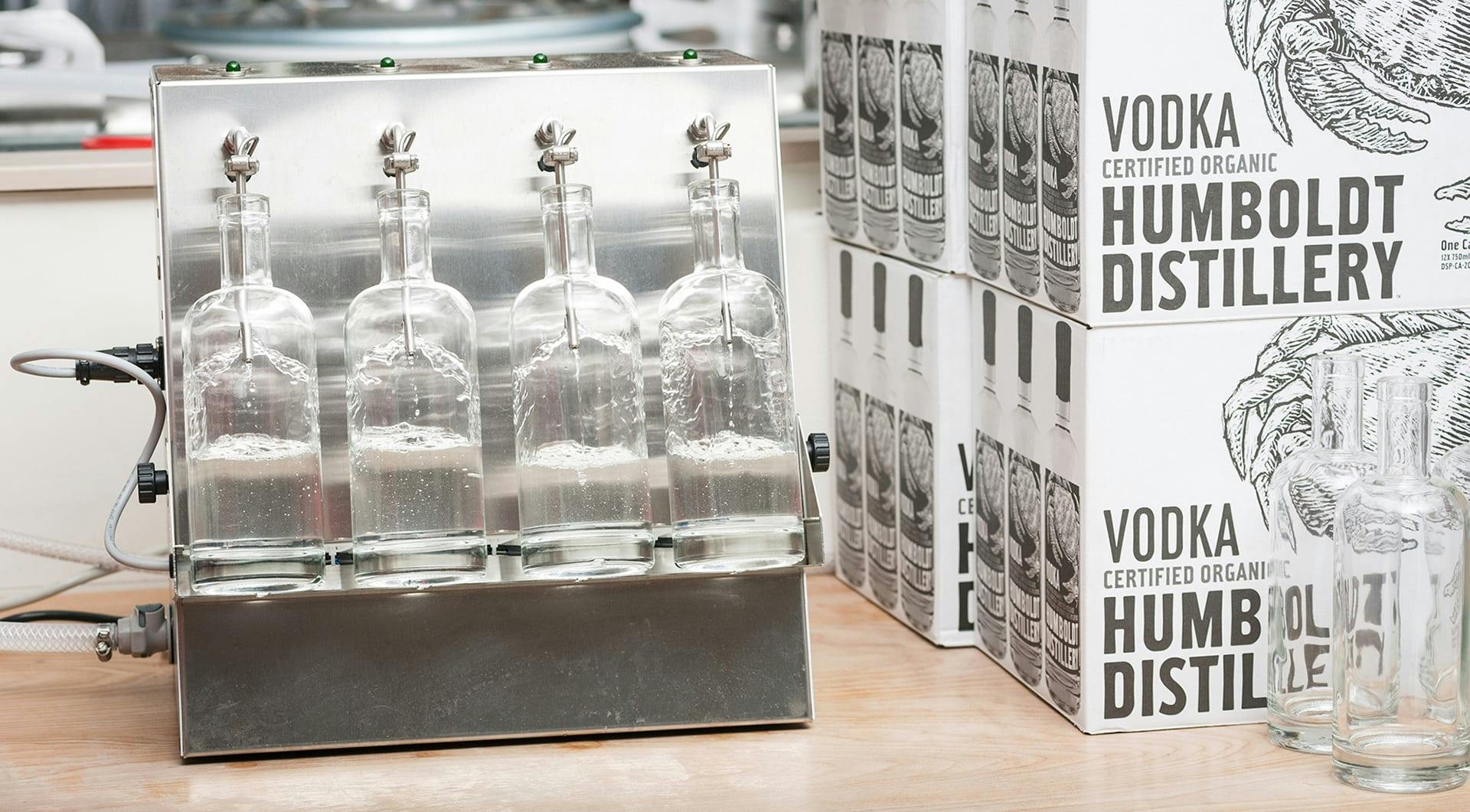
The vodka, which earned a double-gold medal at the San Francisco World Spirits Competition in 2017, is described by the distillery as “a unique liquid that drinks like a gin, but not.” So why not just make a gin? As Abe acknowledges, he and his team have contemplated making a traditional gin. They’ve even gone so far as to design a label for it, which suggests it may someday see production. But Abe is also quick to point out that there are plenty of industry textbooks and tried-and-true recipes for making a London Dry style of gin; and for someone with a background as a development scientist—not to mention someone who as a child dreamed of one day having a laboratory of his own—the prospect of making something ordinary juts doesn’t move the needle.
“It was more fun for me to create a new spirit category,” says Abe, “rather than copy what everyone else is doing.”





